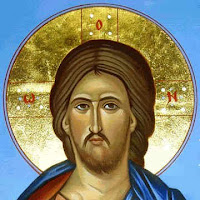Benedict the Radical
 By Patrick J. Deneen
By Patrick J. DeneenOctober 28, 2009
Excerpt:
This "ordering of the house" of Christianity goes beyond any simple - and frankly, almost laughably irrelevant - invocation of "liberal" and "conservative" position reflected in today's American politics. If one reads Benedict/Ratzinger's writings as a whole, one sees that he has consistently argued that Christianity is entering a period in which it will, as a whole, need to strengthen itself by shrinking to a core of the faithful. His is not an electoral strategy, but a gambit to preserve Western civilization. In the book Without Roots, then Cardinal Ratzinger (in a conversation with Italian Prime Minster Marcello Pera) articulated his view that the future of Christianity (and specifically, the Church) will lie in "creative minorities." He wrote there that he viewed such "creative minorities" (comparing them explicitly to the monastic communities of the Middle ages) as a "yeast [Matthew 13:33] - a persuasive force that acts beyond the more closed sphere until it reaches everybody.... The minorities renew the vitality of this great community at the same time as they draw on its hidden life force, which forever generates new life" (122-3).
What's important to note about Benedict XVI's "radicalism" is that it does not rest upon success in the political sphere; his vision for the Church fundamentally eschews much of what actually is shared in common between contemporary "liberals" and "conservatives." In the American context, "liberals" and "conservatives" alike are too much and too often in the throes of the modern orthodoxies, particularly a near-fanatic embrace of science and technology, devotion to "progress," "choice," and "growth," and a fealty to "the Market." Both are essentially earth-oriented, power-hungry and materialist.
We make a grave mistake if we interpret and understand the actions and activities of Pope Benedict XVI through the narrowly political lens that we all tend to wear in these times. He's engaged in a project far greater, and with world-historical significance. He is a radical traditionalist, and in a most untraditional age, such devotions call for radical creativity. Just don't call him "liberal" or "conservative"; both labels are too narrow for his capacious ambitions. He is endeavoring to save Christendom - from those outside it who would wish its demise - but even more, from those within, regardless of their political label.
the rest image


0 Comments:
Post a Comment
<< Home